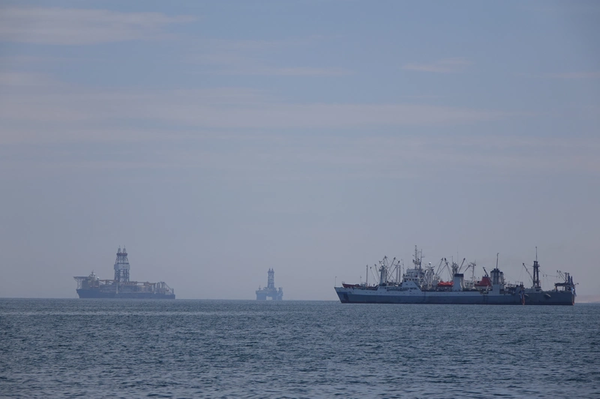
African members of OPEC+ producer group Angola and Nigeria are aiming for higher oil output, officials told Reuters on Thursday, as the countries are locked in talks with the group about their production quotas for next year.
The comments came a day after the Organization of the Petroleum Exporting Countries and allies such as Russia, known as OPEC+, delayed a ministerial meeting expected to discuss output cuts, sending oil prices sliding.
"We are happy, we are waiting for the meeting," Angolan OPEC governor Estevao Pedro told Reuters. "We are fighting to increase our production," he said, adding that investment was being made to make that happen.
Russian Deputy Prime Minister Alexander Novak and Saudi Energy Minister Prince Abdulaziz bin Salman agreed to delay the meeting to Nov. 30 from Nov. 26, an OPEC+ source said on Wednesday, citing issues around other producers.
The Nov. 30 meeting, which overlaps with the COP28 climate summit in Dubai, will convene online, OPEC said on Thursday.
Nigeria was producing 1.7 million barrels per day of crude and condensates as of Nov. 17 and expects to hit 1.8 million bpd by the end of the year, Olufemi Soneye, chief corporate communications officer at its state oil firm NNPC, told Reuters.
Three other OPEC+ sources said the delay to the meeting was linked to African countries. OPEC+ said after its last meeting in June that the 2024 output quotas of Angola, Nigeria, and Congo were conditional on reviews by outside analysts.
OPEC+ has tasked three independent consultancies - IHS, Rystad Energy, and Wood Mackenzie - to verify production figures for those countries and report them at the next meeting.
An OPEC+ source told Reuters the snag that negotiations hit this week was related to the findings of the three consultancies.
Oil prices dipped almost 2% on Thursday, extending losses from the previous session. Brent crude was trading above $80 a barrel, down from near $98 in late September as rising supplies and concern about demand and economic slowdown weighed.
OUTPUT VERSUS QUOTAS
As OPEC+ calls on most members to cut or raise production to manage the market, it is in the interest of members to negotiate a high production target from which any changes will be made.
Nigeria and Angola were among several countries given lower targets at OPEC's last meeting in June after years of failing to meet the previous ones.
As of October, Angola is pumping less than its quota for 2024, according to separate OPEC figures. Nigeria is pumping close to the 2024 quota of 1.38 million bpd and less than a 2024 production plan being verified by OPEC.
Several analysts have predicted OPEC+ is likely to extend or even deepen oil supply cuts into next year and some, including Helima Croft at RBC Capital, have said Saudi Arabia might ask other members to share the task.
"We see some scope for the group to do a deeper reduction," Croft said this week.
Saudi Arabia, Russia and other OPEC+ members have already pledged oil output cuts of about 5 million barrels per day (bpd), or about 5% of daily global demand, in a series of steps that started in late 2022.
This figure includes a 1 million bpd voluntary reduction by Saudi Arabia and a 300,000 bpd cut in Russian oil exports, both of which last until the end of 2023.
(Reuters - Additional reporting by Natalie Grover, Editing by David Goodman, Mark Potter and David Evans)



